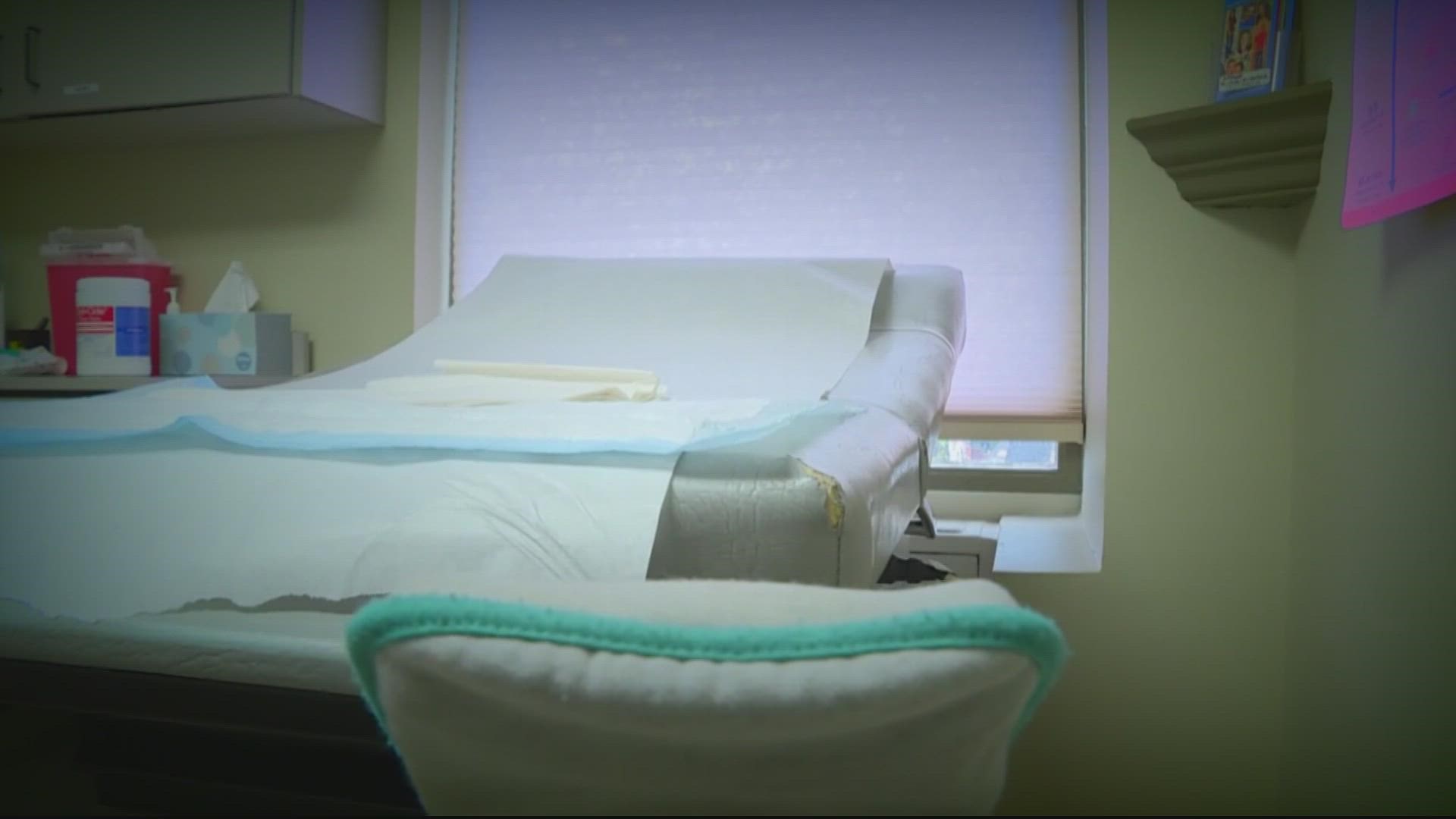RICHMOND, Va. — The future of abortion in Virginia may depend on what happens in the state Senate next year.
Currently, Republicans hold the Governor’s seat and House of Delegates in Richmond. However, Democrats still command the Senate by a slim 21 to 19 majority. Lieutenant Governor Winsome Earle-Sears, who holds the tie-breaking vote in the Senate whenever it is deadlocked, is also a Republican.
Shortly after Politico shared its report Monday suggesting Roe v. Wade could soon be overturned, Virginia Democrats hopped on social media to express the importance the Virginia Senate will hold in 2023.
Virginia Delegate Eileen Filler-Corn, D-Fairfax, tweeted that the Commonwealth is only one state Senate seat away from becoming the next state to ban abortion.
“We must take back our House majority and expand our majority in the Senate to protect the rights of women across the Commonwealth,” she said.
Virginia Senator and President Pro tempore Louise Lucas, D-Portsmouth, chimed in on the matter as well.
“My number one priority is maintaining a woman’s right to choose,” Lucas tweeted. “In Virginia, that means preserving our pro-choice majority in the Virginia Senate. Period. There is nothing else we can do that would have anywhere near the impact of keeping the Senate.”
Earlier this year, Virginia Delegate Nick Freitas, R-Culpeper, introduced a bill that would ban abortions after twenty weeks of gestation.
Freitas’ legislation did not get out of House. However, at the time of its introduction, pro-life Virginia Senator Joe Morrissey, D-Richmond, said he was inclined to support the proposal.
“I have supported fetal pain bills since my days in the House of Delegates,” he said.
Morrissey’s stance on abortion has also fueled some Democrats’ concerns as to what lies ahead for the practice of abortion in the Commonwealth.
Former pro-choice Virginia Delegate Lashrecse Aird, D-Petersburg, is challenging Morrissey for his seat in the state Senate in 2023.
She said Politico’s reporting changed the nature of her race against Morrissey.
“It makes it very clear that this race is no longer just another traditional race,” she said. “In Virginia, it really is the difference between the protections for access to reproductive rights and not.”
Aird admitted she now feels additional pressure to win.
“But it is pressure that I am fiercely taking on because I do feel as though this is a matter between individuals’ safety, [and] their ability to seek the care that they deserve, which is a fundamental human right,” she said.
WUSA9 reached out to Morrissey for comment on the senate race, but we have yet to receive a response.
Still, anti-abortion groups are preparing to fight for control of the senate in Virginia too.
Veronica Cobb, President of pro-life group The Family Foundation, said she is cautiously optimistic about what the future holds.
She said the issue goes beyond party lines in the Virginia Senate as its members, currently, appear to be evenly split on abortion.
“There's a lot of places where I think we can find agreement,” Cobb said. “Common sense restrictions, I think is a place where the conversation could bring unity rather than the difficult division that it often sees.”
She added having Republicans in control of the Virginia Senate would also open the possibility for more pro-life bills to get out of committee. Right now, since Democrats hold the Senate, they also control all of its committees.
“What we see is there's extremism in control of the Senate,” she said. “So, yes, its elections are going to be really powerful when we see the next Senate opportunity, the next opportunity for voters to make decisions around who's going to represent us in the Senate.”
Reporters asked Governor Glenn Youngkin what he would do if the Supreme Court did ultimately decide to overturn Roe v. Wade.
The Republican governor, who has previously said he is pro-life, said it is too early to tell.
“At this point, I don’t want to speculate on what we’ll do,” he said. “We don’t have a final decision yet.”
Cobb said she thought it was unfair that Youngkin should have to answer a hypothetical question about what he may do in the future regarding the issue of abortion.
“It's interesting that pro-life governors are always asked to go into the hypothetical and go to the full extremes, but when pro-abortion governors say they're willing to take human life after it's born, they're rarely challenged,” she said. “And, so, Governor Youngkin is simply looking at the reality and saying, ‘why am I going to answer hypotheticals when we have a long road to go.”

